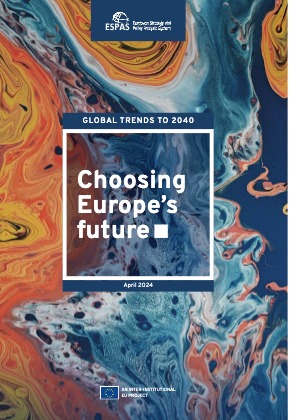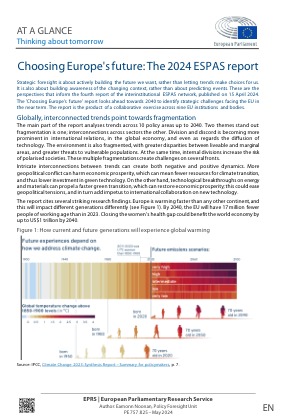Last Edited: 3 months ago
ESPAS Annual Conference: Europe Towards 204013 November - 13 November 2025
Charting a course in a new era of conflict and competition
The European Strategy and Policy Analysis System (ESPAS) annual conference will be held in Brussels on Thursday 13 November. As in previous years, the conference will be co-hosted by the European Commission and the European Parliament.
At a time of global upheaval and uncertainty, this conference will focus on the future and the strategic choices facing the European Union as it charts its own course in the coming decade and more. Decision-makers are frequently faced with multiple and sometimes overlapping crises to which they are required to find quick solutions. The need to think about the longer-term and how to build our collective resilience to deal with shocks and unforeseeable threats - to be able to 'stay the course' - has rarely been more pressing.
The speakers at this 12th annual ESPAS Conference will aim to shed light on some of the fundamental challenges Europe will face in the fields of technology, geopolitics, democracy and intergenerational fairness. And together we will explore possible scenarios for charting a course towards 2040. How can the European Union harness transformative technologies such as AI? Where should it position itself in a new world order, and how can we shape it? How can European democracy be revitalised and societies respond to creeping authoritarianism? How can we build a new intergenerational fairness agenda?
These and other epoch-defining challenges decision-makers face cannot simply be overcome using short-term fixes. Politicians are increasingly looking for anticipatory, longer-term thinking that offers them pathways to improved policy outcomes. Foresight, with its inherent ability to harness collective intelligence and promote long-term thinking, plays an increasingly important role in supporting European policy-makers to make the right strategic choices.
Our aim in ESPAS is to help European Union policy-makers prepare better for the shocks and opportunities that come our way, but also to offer a structured approach with practical tools to look beyond today's challenges. This annual ESPAS conference with leading political figures, civil society representatives, policy experts and foresight practitioners offers a unique platform to bring foresight and policy-making together in a European context. It also provides a significant and timely opportunity to explore new ideas for Europe's future, and to help shape its priorities for the coming decades.
👉 See the programme
Posted on: 30/09/2025



